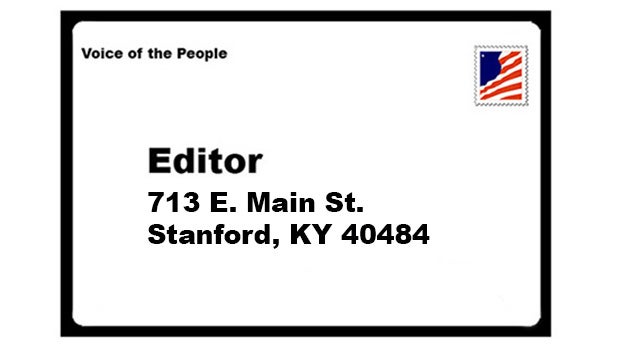Touchy topics for McConnell, Trump
Published 6:27 am Thursday, March 23, 2017

- Al Cross
By Al Cross
Courier-Journal
WASHINGTON – When Donald Trump comes to Kentucky on Monday, for his first visit to the state as president, check your watch when he starts talking. And when he gets to the biggest federal issue for Kentucky— health care— check the elapsed time.
When the president spoke in Nashville on Wednesday, he went through more than two-thirds of his speech, past the 25-minute mark, before he mentioned health care. And even then, it sounded like he didn’t want to talk about it.
“I want to cut the hell out of taxes,” Trump said. “But before I can do that — I would have loved to have put it first, I’ll be honest — there is one more very important thing that we have to do: We are going to repeal and replace the horrible, disastrous Obamacare.”
Oh, yeah, that. It’s clearly not the president’s favorite subject, probably because he’s all about winning, and the first stage of Republicans’ repeal-and-replacement plan is looking like a loser. It cleared the House Budget Committee with no votes to spare Thursday, only after House Speaker Paul Ryan acknowledged that changes would be needed.
Even before that, Ryan’s Senate counterpart, Majority Leader Mitch McConnell of Kentucky, wasn’t exuding confidence. “It all remains to be seen if the House turns out,” he told me in an interview Monday.
That was before the Congressional Budget Office said the plan would lead to 24 million fewer Americans having health coverage by 2026. Earlier, non-governmental analyses had smaller estimates.
If McConnell runs again in 2020, many of the newly uninsured would be his constituents, because the plan would limit Medicaid spending, starting that year, and force a slow contraction of the program. About 1.3 million Kentuckians are on Medicaid, 440,000 of them from its expansion to people with incomes up to 138 percent of the federal poverty level (about $34,000 for a family of four).
Asked about those folks, McConnell said, “At least they get care. What I’m more worried about is the people a little more affluent than they are, who have been, some of them, on these crashing exchanges,” where fewer insurers are offering subsidized Obamacare policies, and at higher costs.
“Some of those people – we never could get a number out of the previous administration – were already insured and now have worse insurance,” McConnell said, so the plan offers refundable tax credits for buying health insurance.
McConnell likes to steer the Obamacare debate to private insurance, but only 81,000 Kentuckians have Obamacare policies, virtually the same as last year. Expanded Medicaid is the main reason Kentucky had the largest decline in percentage of citizens without health insurance.
Asked what he would say to people who fear that Medicaid will, out of budget necessity, have to be limited, causing some to lose coverage, McConnell said, “Our hope is that many people will become less eligible because they will be doing better.”
And what about the people who do become newly eligible? The senator said, “Unless somebody is truly in a catastrophic situation, you don’t want to make it impossible to better yourself, you know, to get off of Medicaid, to get a job, to have upward, some upward mobility.”
McConnell thus implicitly endorsed the flawed notion that Medicaid is a welfare program and a disincentive to work. It may be for some, but most Kentuckians on expanded Medicaid work, few have employers who offer insurance, and their low incomes make it hard for them to buy private insurance.
Asked for a clarification, McConnell spokesman Robert Steurer said, “He believes that Medicaid’s top priority ought to be serving those Kentuckians the program was designed for first and foremost – the disabled, frail elderly, indigent, and children – not stretch it past its breaking point by adding more people to an already over-burdened system at added cost to taxpayers.”
McConnell knows that while the newly insured may not have voted for Democrats for getting them covered, they could have a stronger motive to vote against Republicans for taking that coverage away. The plan for gradual contraction of the program could be designed to limit its political impact.
An early version of the plan would have started the Medicaid limits in 2018, but Republican moderates objected. Now McConnell and Ryan are caught between the moderates and the ardent conservatives, including Kentucky Sen. Rand Paul, who dislike the tax credits and almost anything else that resembles the current law.
McConnell said the bill’s rocky rollout should be kept in perspective: “I don’t think this is any more unusual than any other run-up I’ve witnessed over the years, to major legislation. Pretty complicated trying to get everybody in the right place.”
Because some parts of the plan will be subject to a Senate filibuster and need 60 votes to pass, the initial bill has measures that can be passed with a simple majority of 51 under budget reconciliation rules. “We can’t sort of do the perfect bill because everything that can make a perfect bill is not reconcilable, so we have to do it in steps,” McConnell explained.
The rules are enforced by the Senate parliamentarian, and some conservatives have suggested that the Senate overrule the parliamentarian to make passage easier. “We won’t be doing that,” McConnell said. “We’re not going to break the rules.”
“It’s challenging,” he said, “and the fundamental question politically is going to come down, I think, on the Senate side, to whether — in the end, we’re going to have a choice: We defeat this and we’re stuck with what we’ve got, or we pass something that may be less than perfect.”
Told that Paul would say he is posing a binary choice, and there should be more negotiation with the conservatives, McConnell said, “There’s plenty of negotiation going on, but in the end it’s going to come down to whether you’re for the status quo or whether you think we can do better.”
Lots of people on private insurance know it could be better. Medicaid folks almost surely prefer the status quo.
Al Cross, a former CJ political writer, is director of the Institute for Rural Journalism and Community Issues and associate professor in the University of Kentucky School of Journalism and Media. His opinions are his own, not UK’s.





